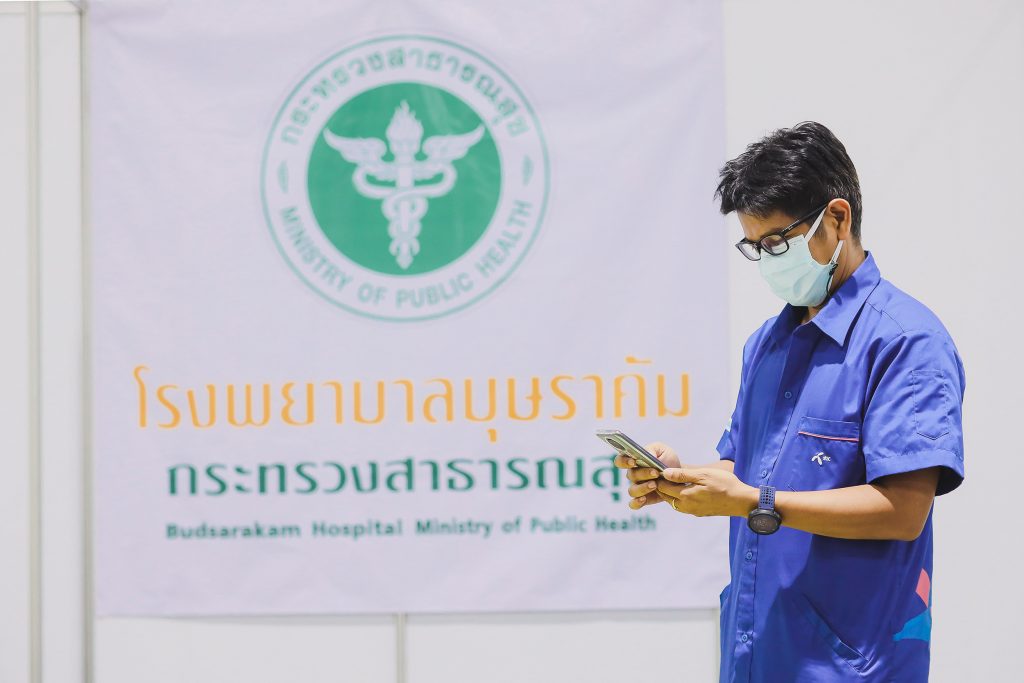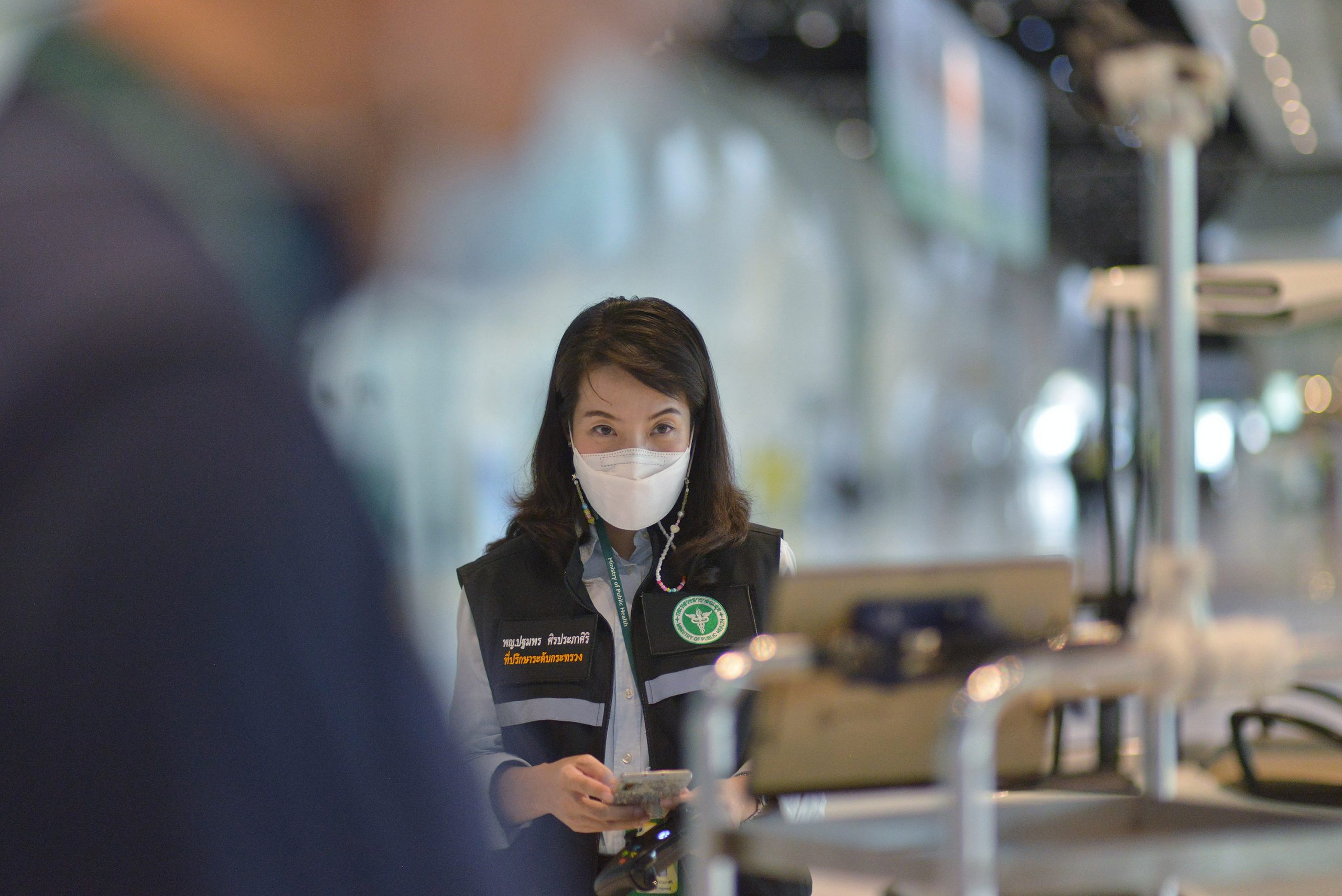With mobile connectivity, patients get better care and go home sooner
The COVID-19 situation in Thailand remains on the highest alert, especially within the top 10 most infected provinces. Bangkok tops the list with 1,356 cases per day and 41,573 cases cumulatively (Diseases Control Department, Ministry of Public Health, 31 May 2021).
As the number of confirmed cases continues to rise, the Ministry of Public Health has expedited capacity-building and adopted digital solutions to improve care and reduce the time patients must spend in field hospitals.
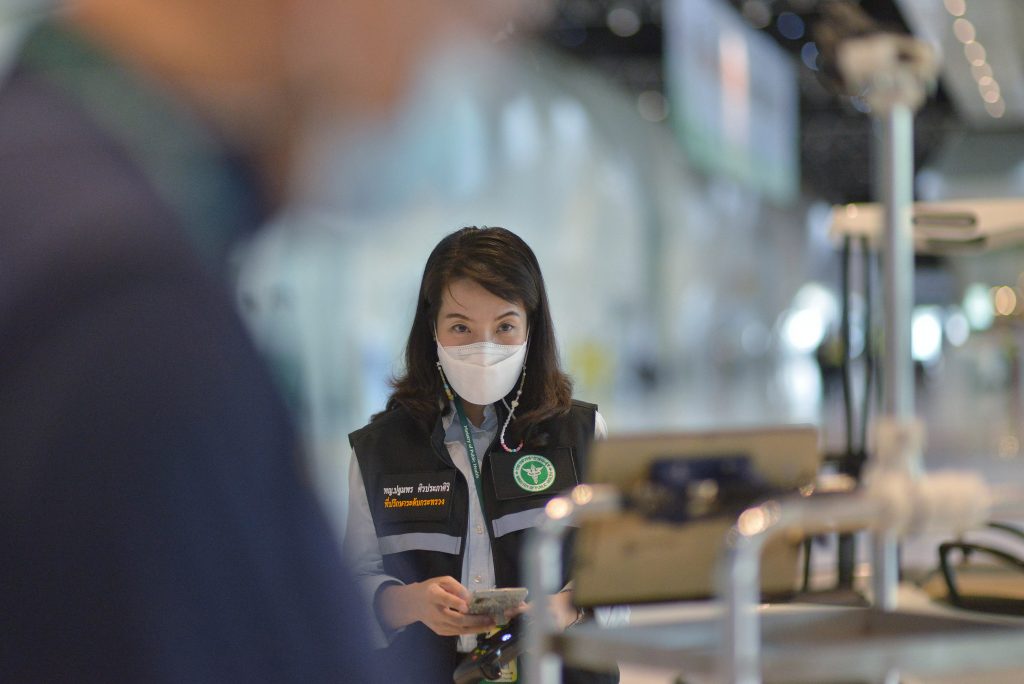
Building Capacity
Dr. Pathomphorn Siraprapasiri, as Advisor to the Department of Medical Services and a medical expert at the Public Health Permanent Secretary Office, shared with us the patient care plan for the Bussarakham Field Hospital. This is currently the largest field hospital for COVID-19 patients in Thailand, located in the IMPACT Challenger Hall, Muang Thong Thani, covering over 100,000 square meters of space.
Dr. Pathomphorn said, “Here, we quarantine and provide treatment to COVID-19 patients with moderate symptoms to make sure their conditions do not worsen. The available number of regular hospital beds may not be sufficient, so we created field hospitals to cater for the newly infected cases.”
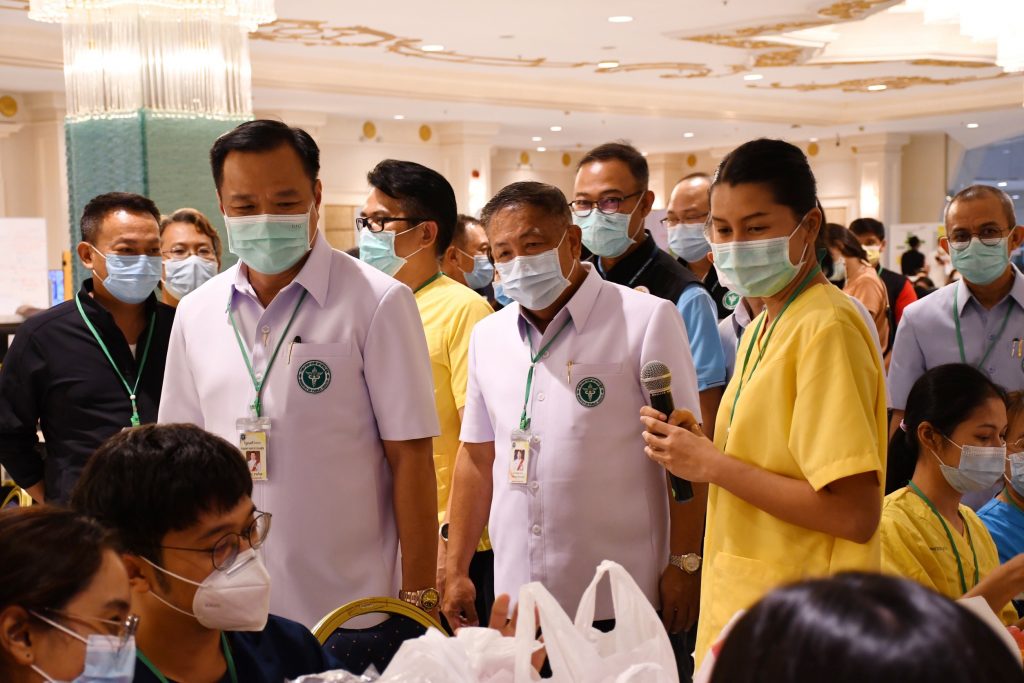
The Bussarakham Field Hospital started in Challenger Hall 3 with 1,083 beds deployed in just seven days. This was then mirrored in Hall 1 with 1,078 beds in five days. One in four beds is equipped with oxygen. One hundred shower rooms have been built behind the hall. Even waste management for garbage and water was overhauled.
Digitalizing Care
Once the infrastructure of the field hospital was complete, the next step was to transform the field hospital into a digital hospital. By utilizing digital technology and IT solutions, doctors and nurses can access patient information, patient history, and present illnesses instantly.
Digital equipment is also used to monitor the patients with devices that can remotely share vital signs – such as blood pressure, temperature, and heartbeat. Medical personnel have real time dashboards to track patients and even robots to deliver medication.
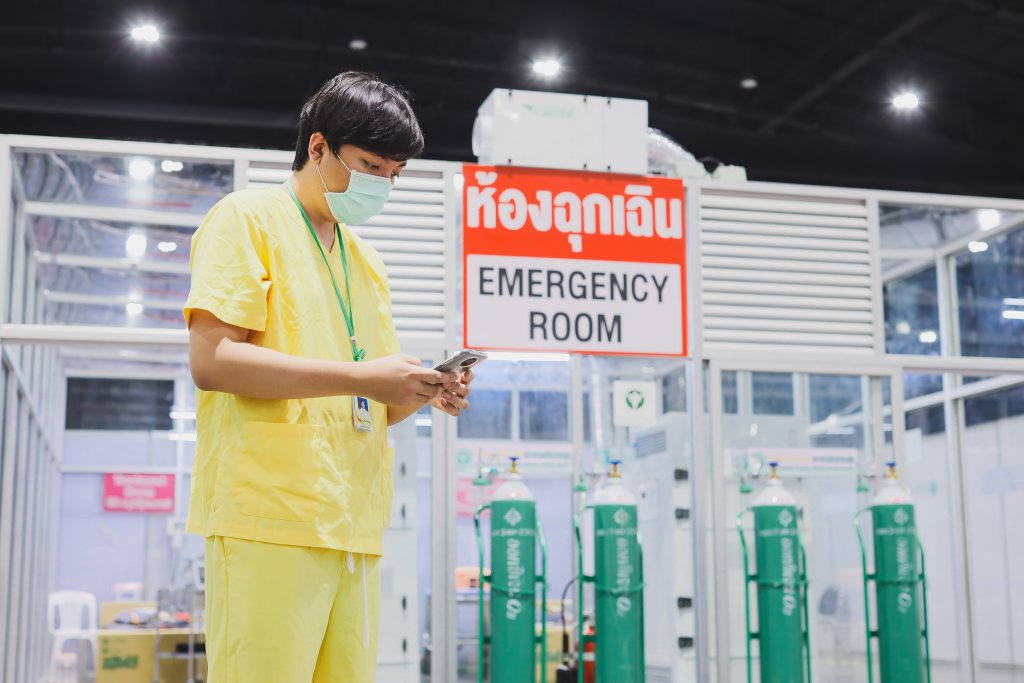
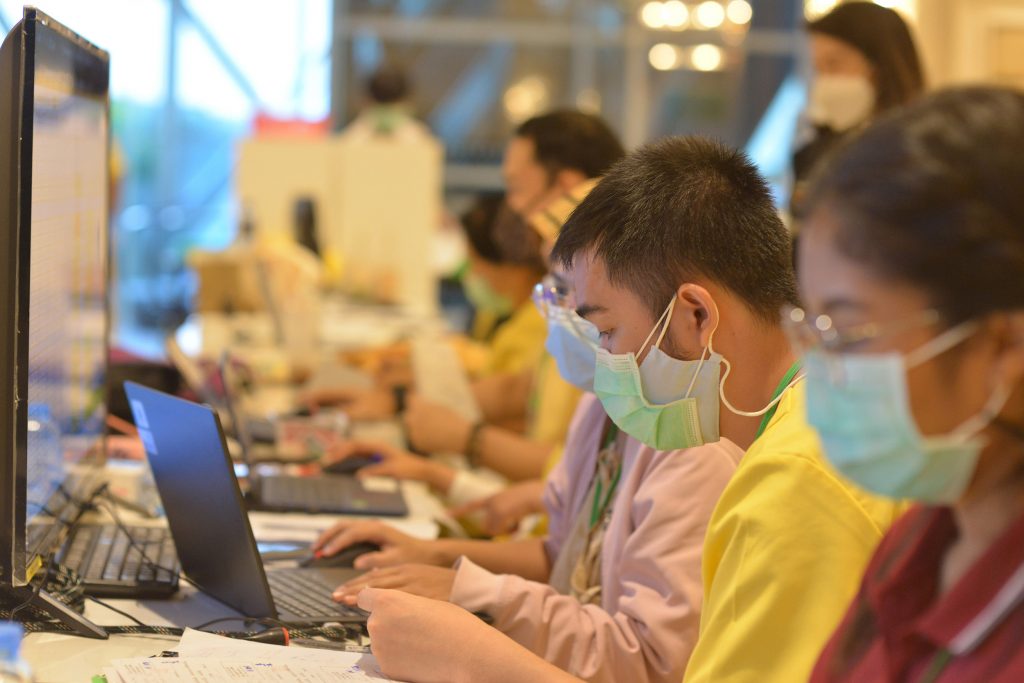
Dr. Pathomphorn explained, “After swabbing tests in various hospitals have identified confirmed cases, a team at the Urban Institute for Disease Prevention and Control will update an electronic database of positive cases and allocate a bed for each patient. This information is sent to the Bussarakham Field Hospital via a digital system to source beds. Then personnel at the Bussarakham Field Hospital will verify patient readiness to be hospitalized and arrange for transport with the National Institute for Emergency Medicine (NIEM). The patient will be then be admitted to the Bussarakham Field Hospital.”
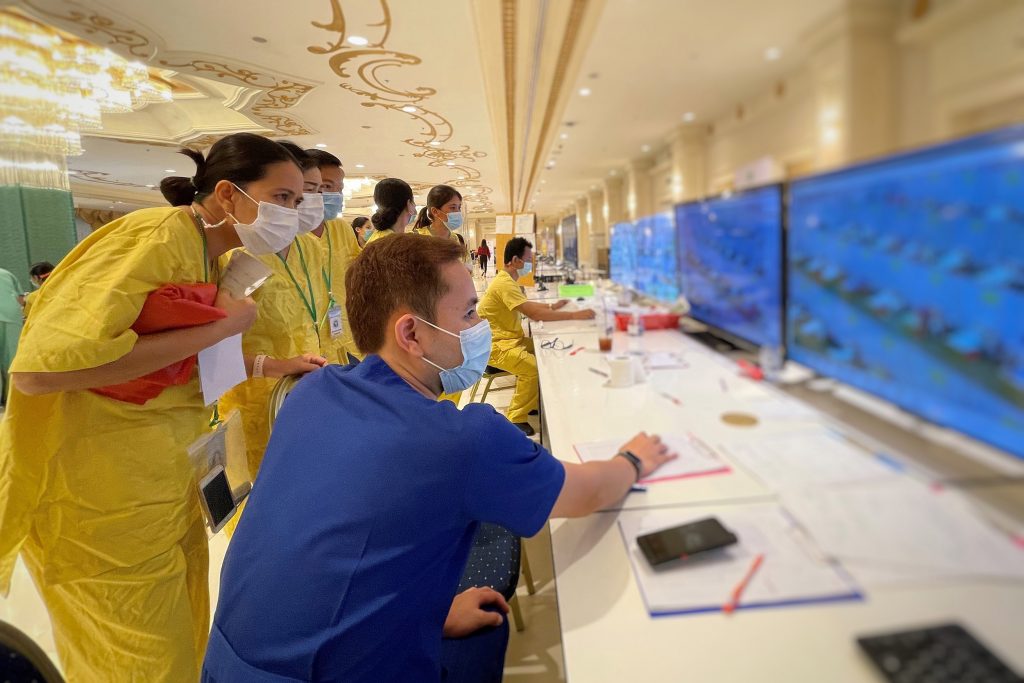
High-Speed Internet for All
The key to ensuring the digital management and communications systems work in the field hospital as well as linking everything together at all times is high-speed internet, as well as the computers and smartphones.
In support of Thailand’s fight against COVID-19, dtac has thus been deploying high-speed internet connectivity at mission-critical sites nationwide, such as the Bussarakham Field Hospital.
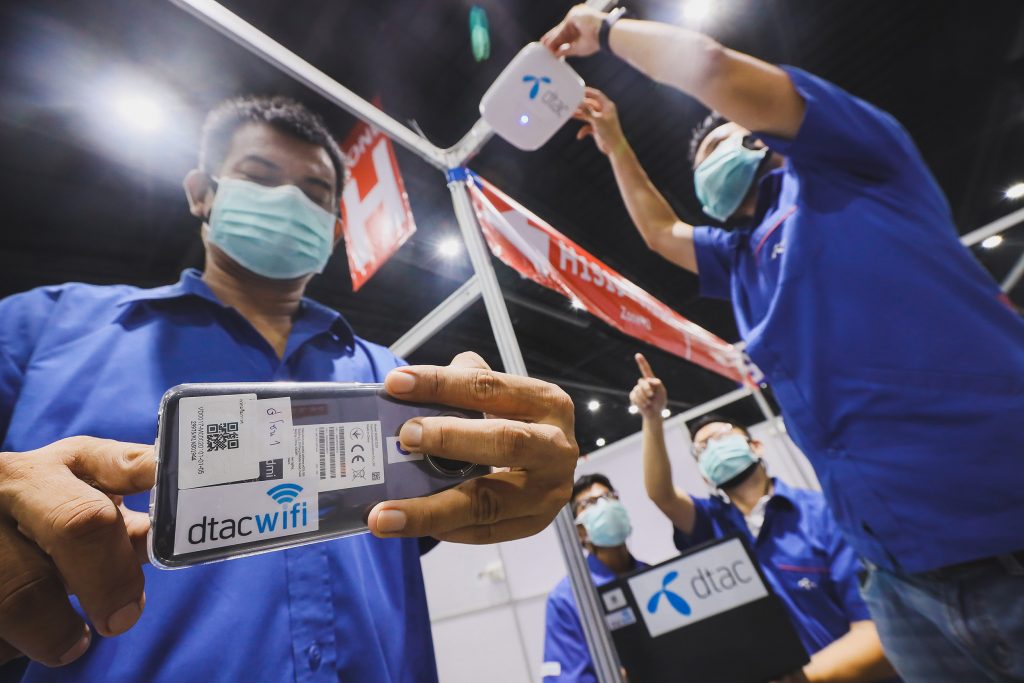
dtac also helped install access points for Wi-Fi, computer notebooks, smartphones, CCTV cameras, and dtac@Home fixed wireless broadband – an easy-to-install boxset device providing wireless connectivity without the need for cabling. These are available at the Bussarakham Field Hospital and nurses’ quarters to support the work of doctors, nurses, and public health personnel. The medical teams also use notebooks to perform telemedicine remotely or via Line application.
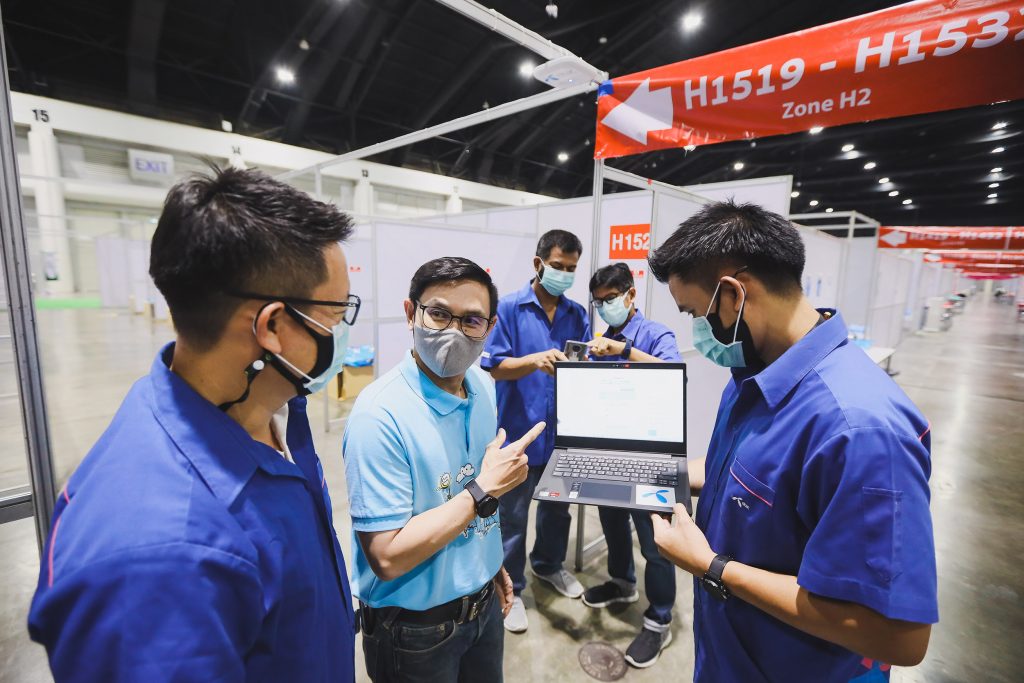
Dr. Pathomphorn concluded on the overall experience for patients, “The treatment here is expected to last 14 days from the day the patient tested positive, except for seriously ill patients. Once they get better, they may also be brought here to recover, so that hospital beds become available for new patients. These recovering patients usually spend 3-5 more days in the Bussarakham Field Hospital before being discharged. Digital technology helps take patients home faster and increases the treatment capacity of the Bussarakham Field Hospital.”
With the dedication of Thailand’s frontline healthcare workers and effective connectivity solutions to support them, Thailand is in good hands.
